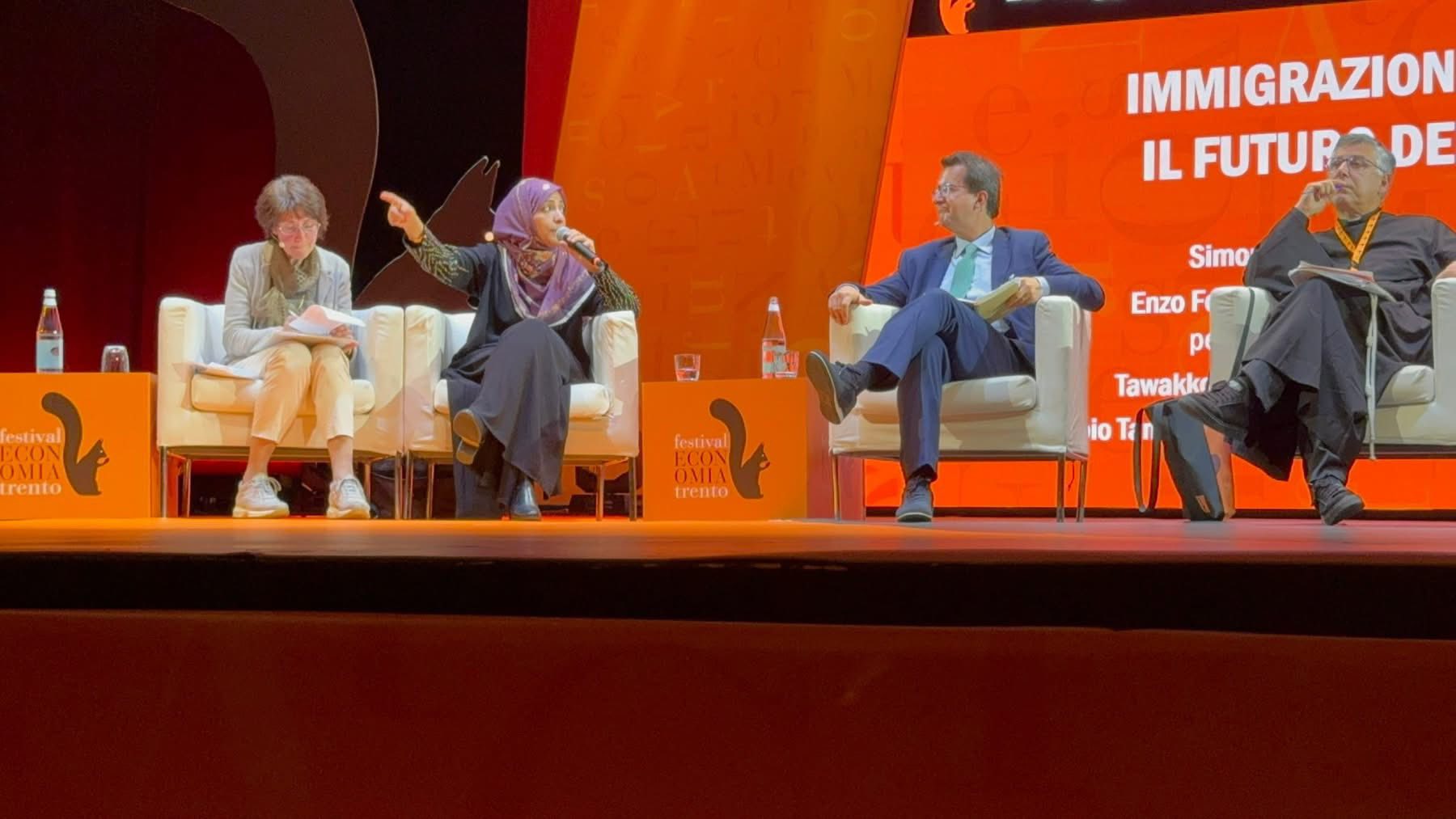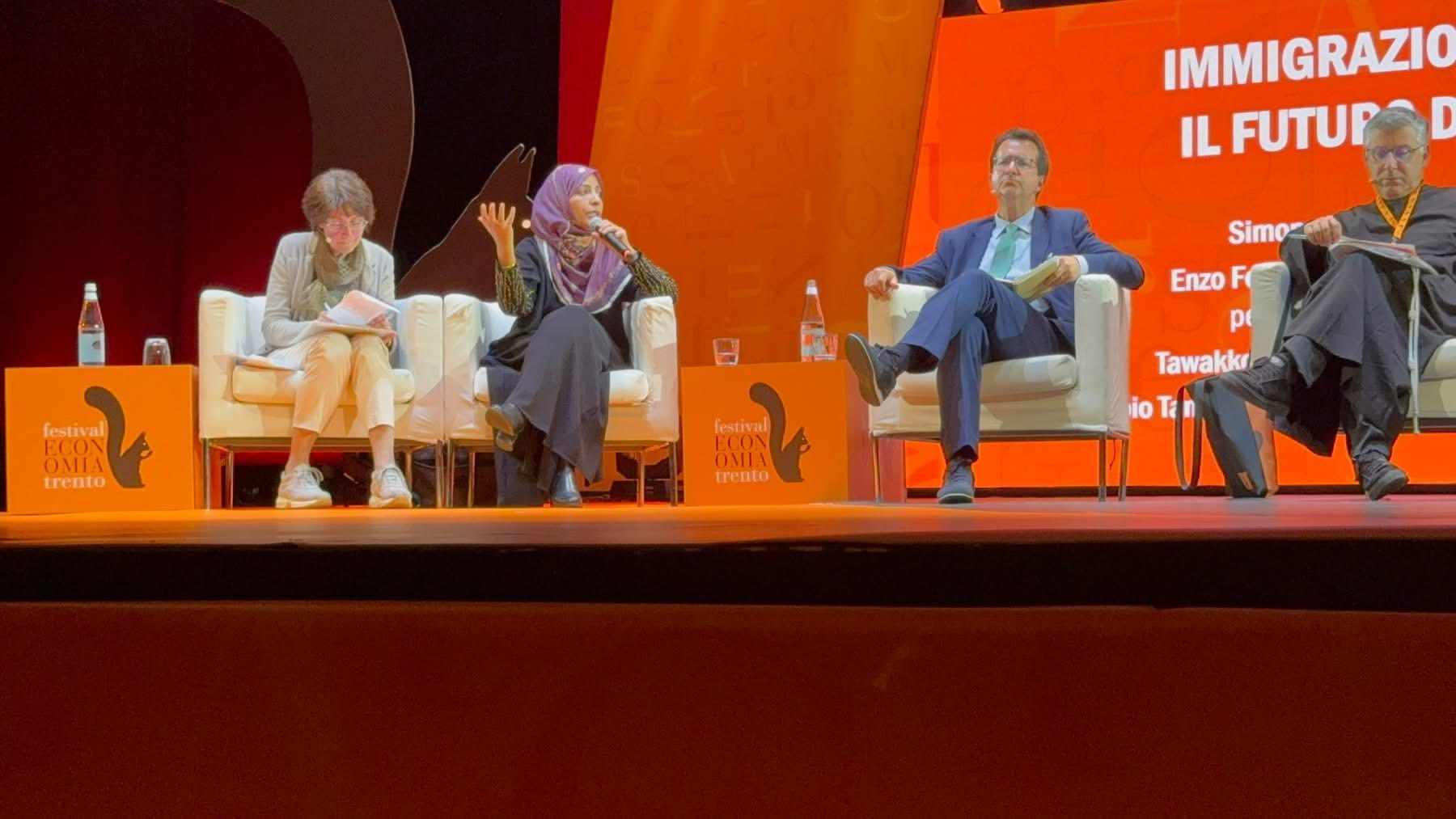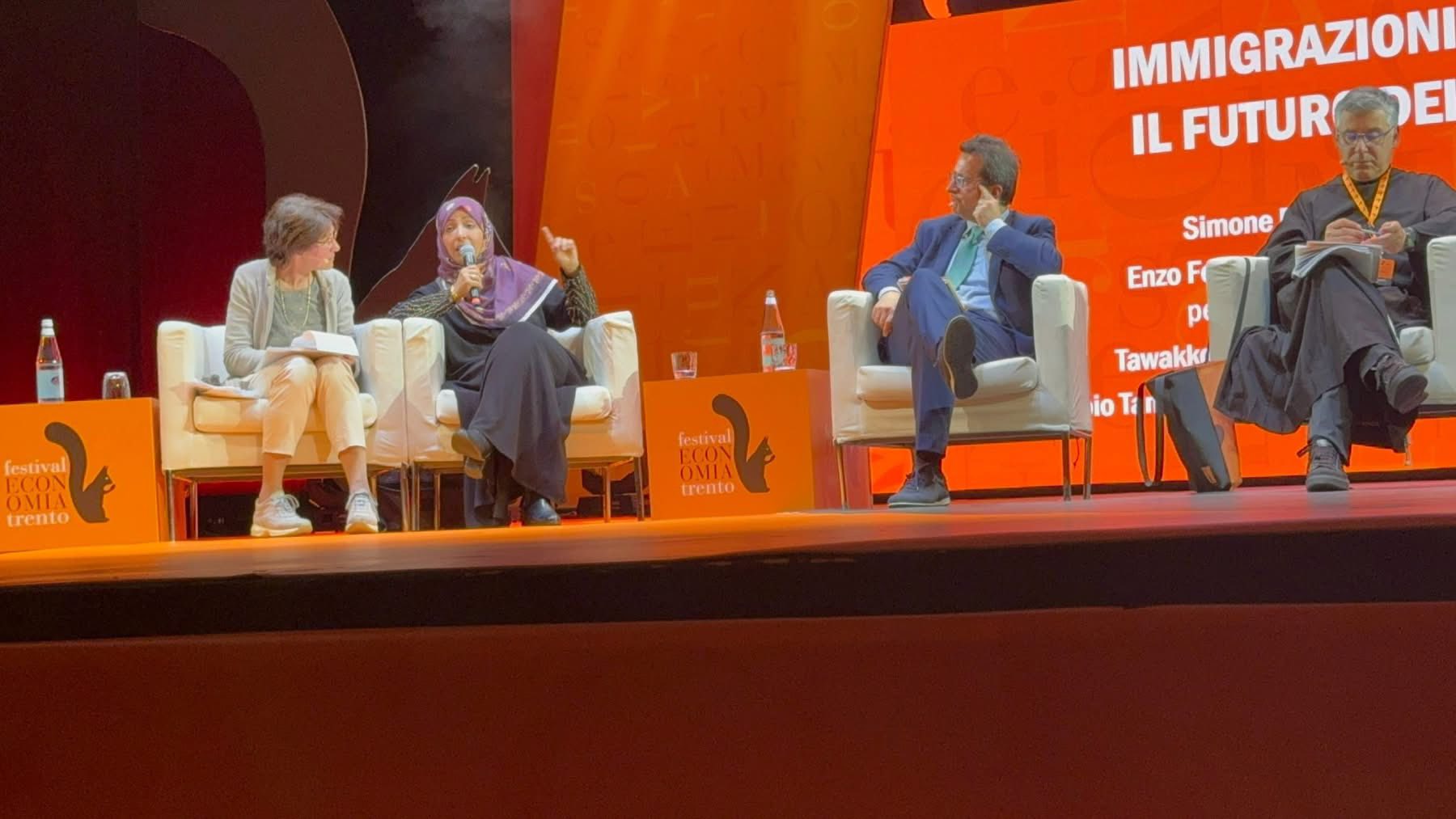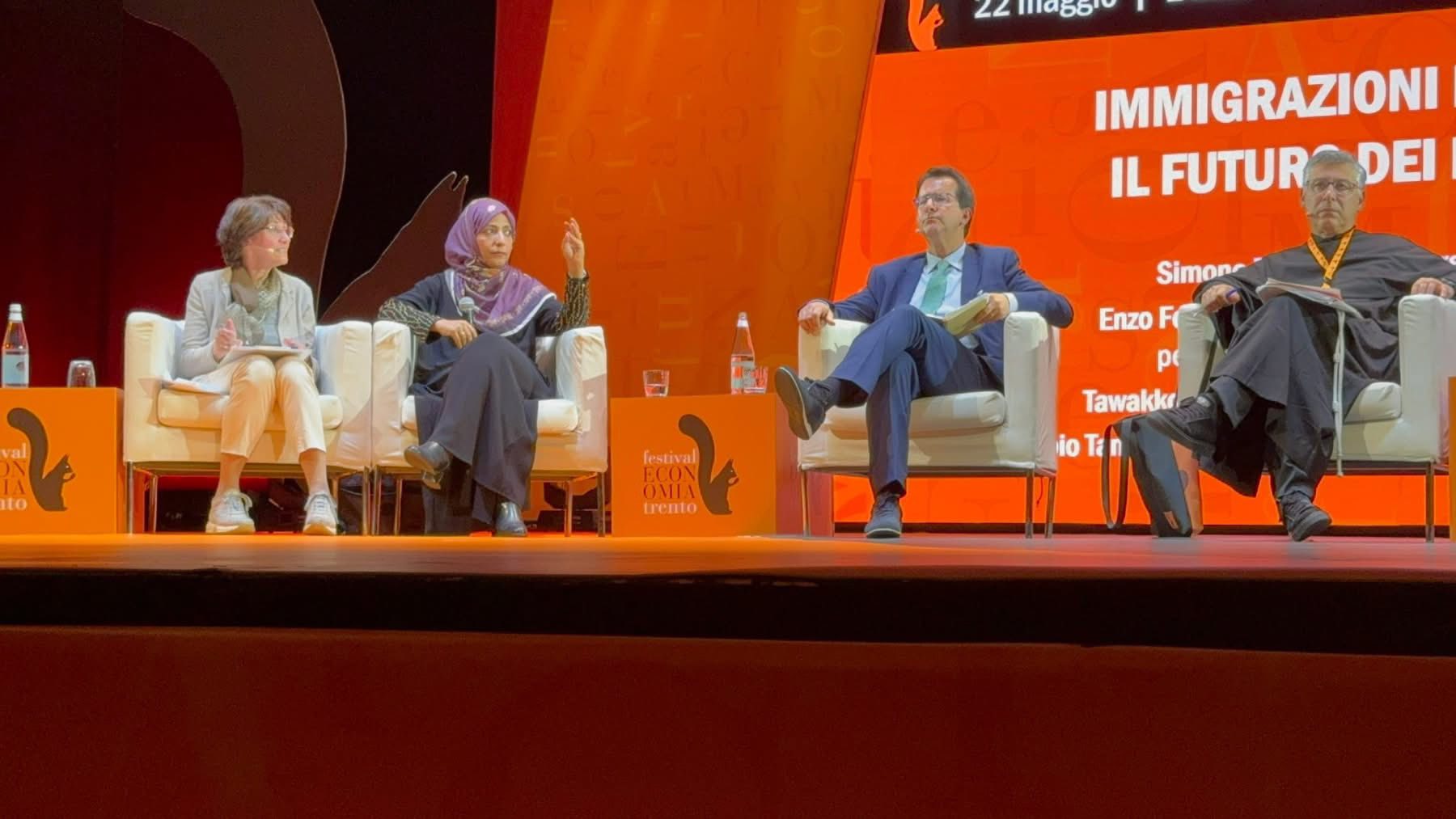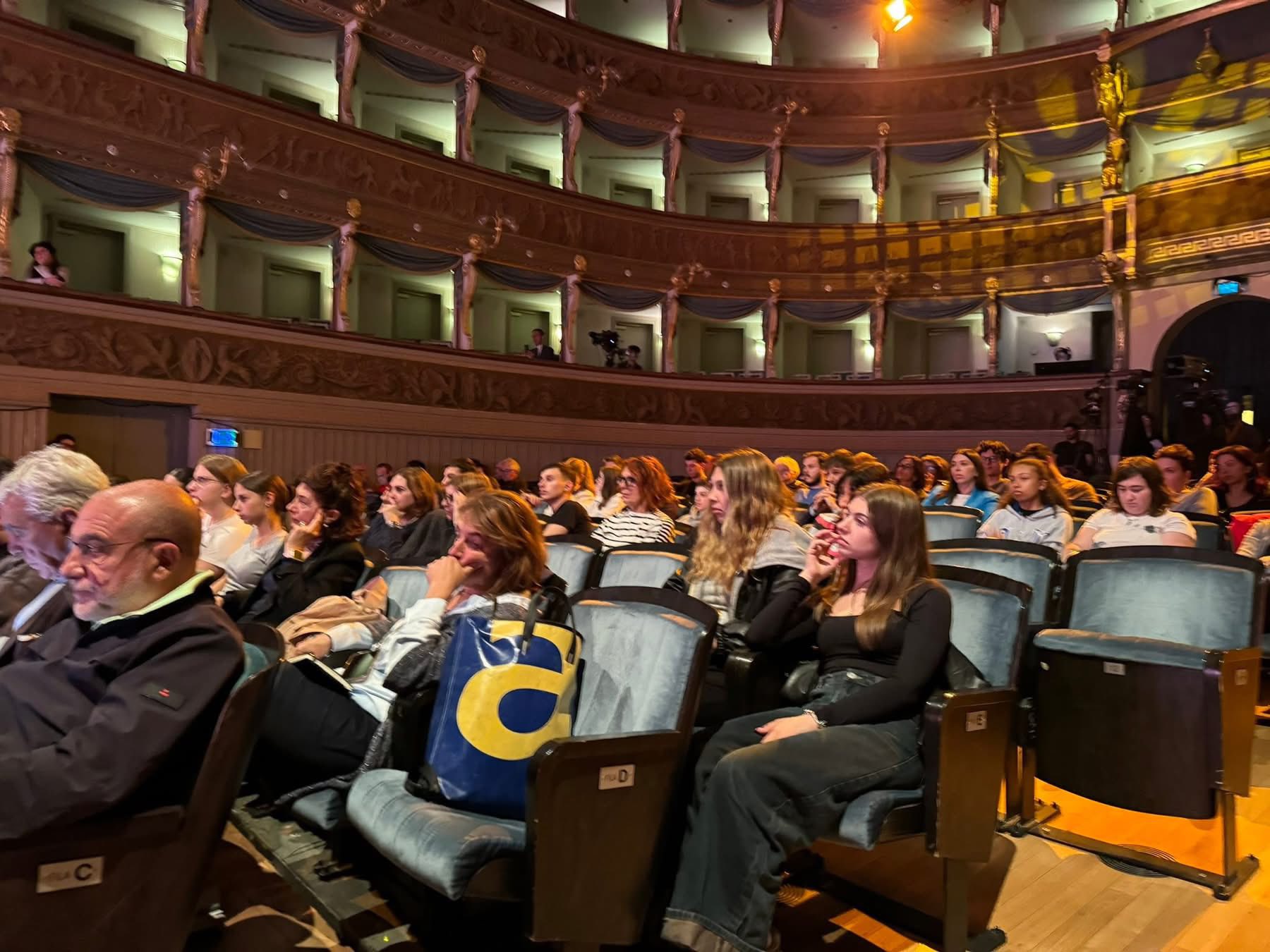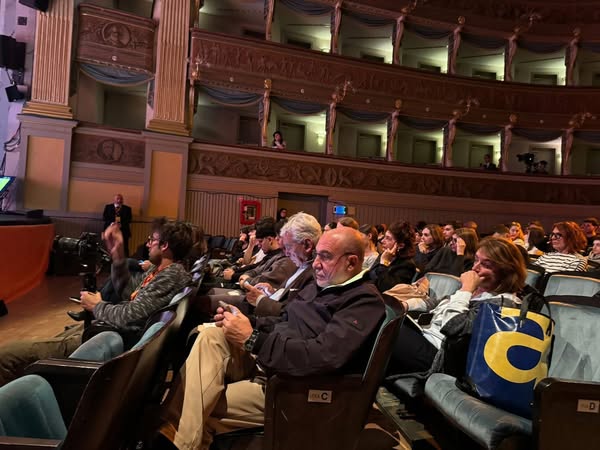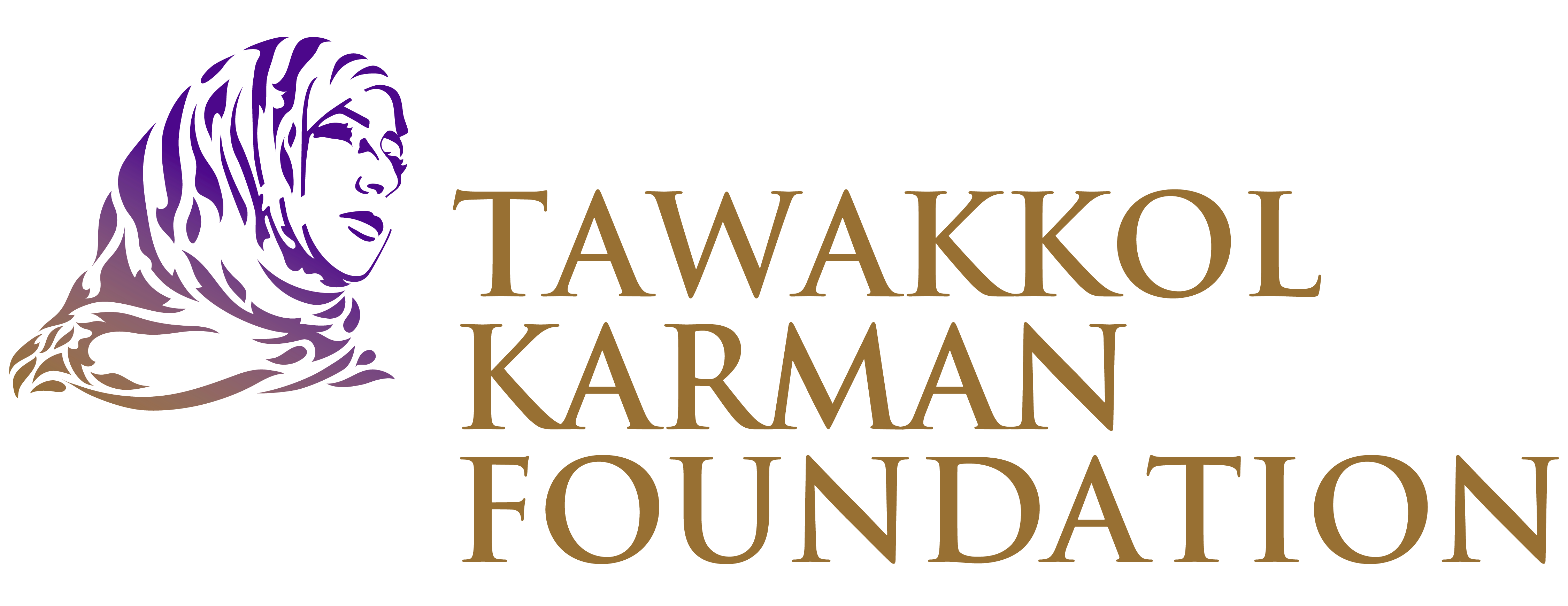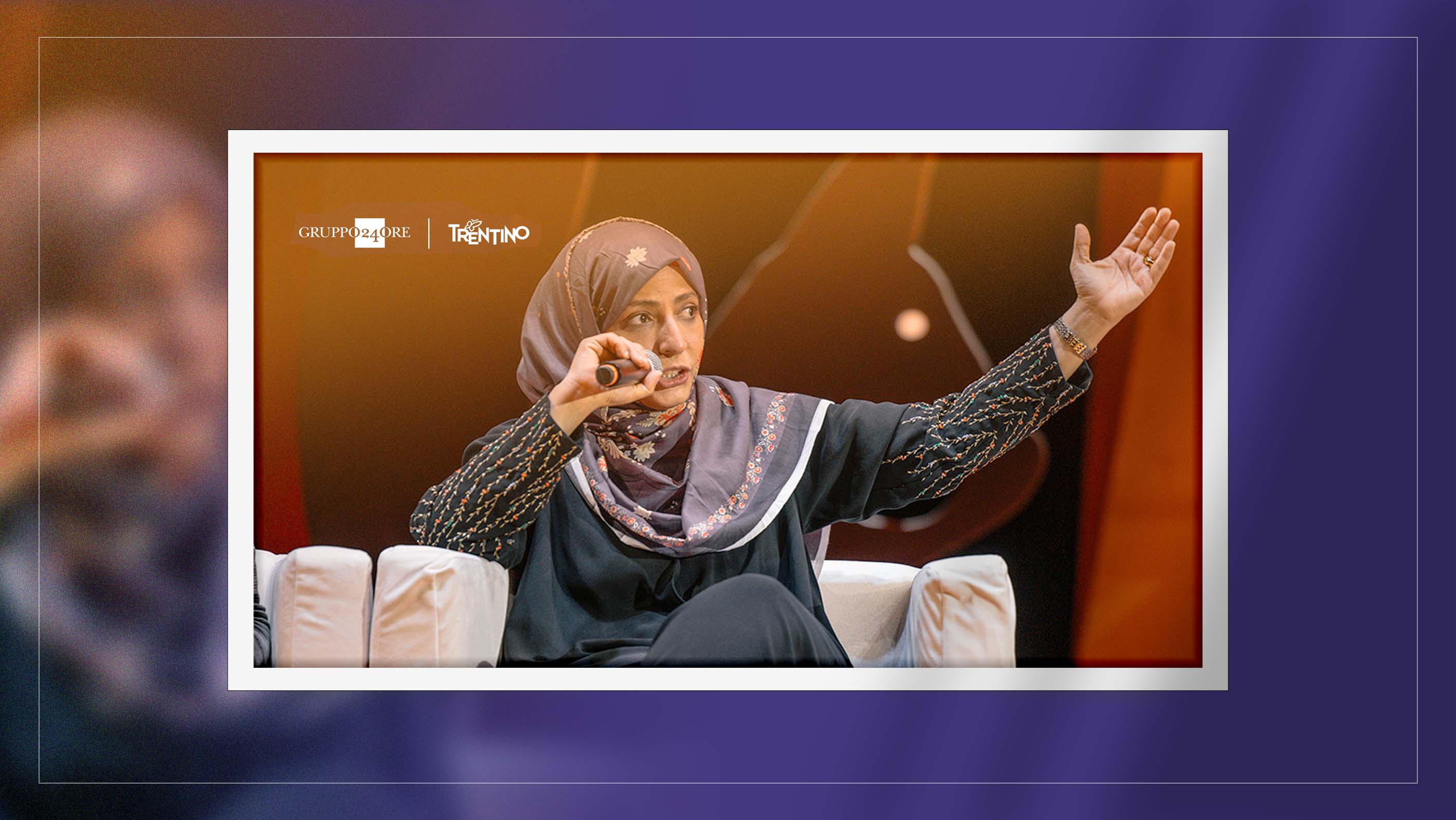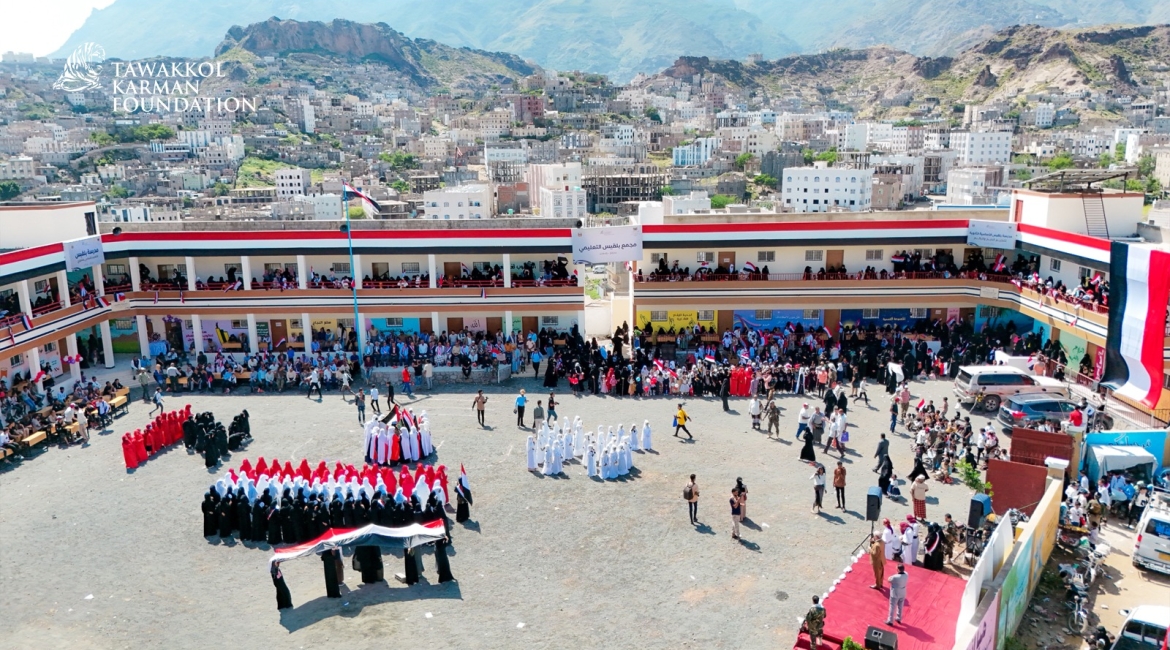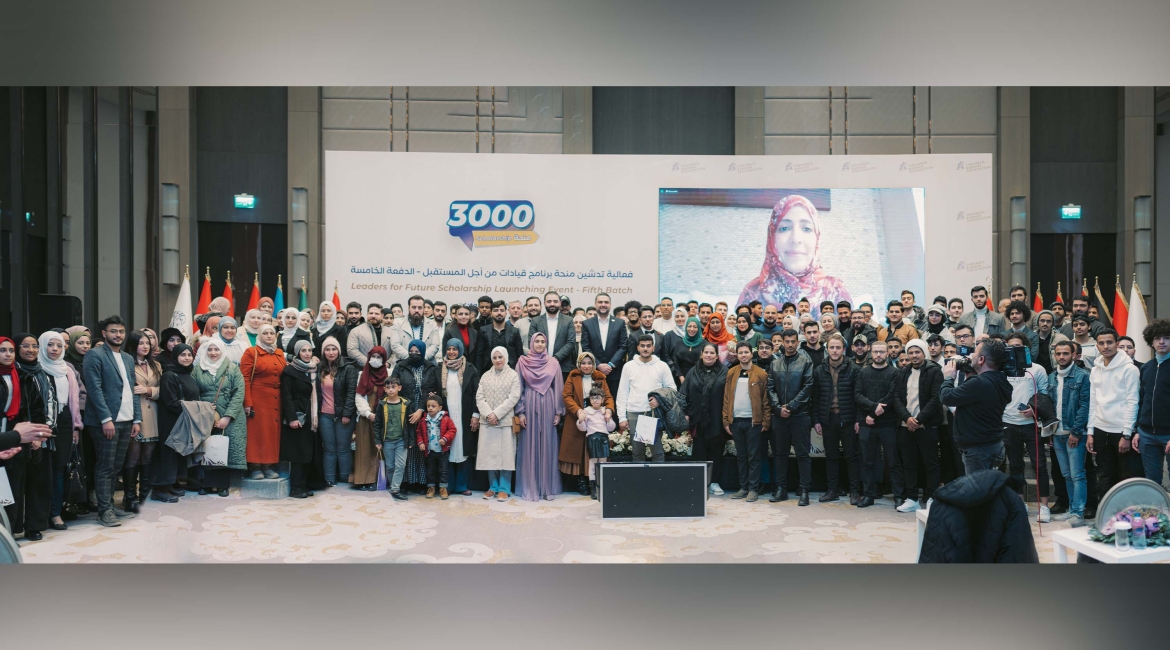Nobel Peace Prize laureate and prominent human rights advocate Tawakkol Karman raised serious concerns about the growing threats facing children around the world, warning that their safety, rights, and future opportunities are increasingly jeopardized by ongoing wars, authoritarianism, and rising global inequality.
Her remarks were made during her participation in the 2025 edition of the Festival dell’Economia in Trento, Italy, held from May 22 to 25 under the theme "Risks and Fatal Choices: Europe at a Crossroads."
During a dialogue session with Enzo Fortunato, President of the Pontifical Commission for Universal Children’s Day, Karman focused on the urgent challenges confronting children in conflict zones, contexts of forced migration, and worsening poverty and environmental degradation. She emphasized that millions of children remain deprived of their most fundamental rights—including access to education, healthcare, and protection—due to the persistence of violent conflicts and systemic oppression.
Karman highlighted the continued escalation of wars and the entrenchment of authoritarian regimes, creating conditions where children cannot live in safety or dignity. She pointed to the Russian invasion of Ukraine and the Israeli occupation of Palestine as emblematic cases where state violence and militarized policies have devastating consequences for civilian populations, particularly the young.
She criticized the widening chasm between wealth and poverty on a global scale, asserting that the concentration of economic power in the hands of a few further marginalizes vulnerable communities. Additionally, Karman expressed deep concern over environmental degradation caused by polluting industries, noting that the consequences are especially dire for indigenous populations and children in impoverished regions.
Karman argued that intersecting crises—military aggression, economic injustice, and ecological collapse—collectively constitute an existential threat to younger generations. She called for global moral accountability, insisting that meaningful support for children requires confronting the underlying causes of their suffering.
She stressed that protecting children’s rights must be treated as a universal imperative, and that attempts to improve their lives must address the roots of injustice: war, occupation, tyranny, and entrenched poverty. In her view, only through coordinated international action, grounded in justice, peace, and sustainable development, can a viable and hopeful future be secured for the next generation.
Her participation in the Trento Economics Festival underscored the intersection of humanitarian advocacy with critical economic and policy debates. The festival, a leading European platform for intellectual and political dialogue, convened global leaders, scholars, and civil society figures to explore the dilemmas facing Europe and the broader international community amid rising geopolitical instability, social fragmentation, and climate emergency.
